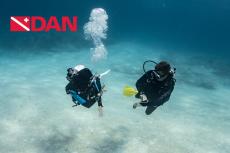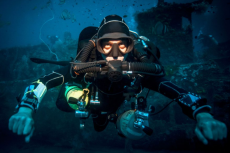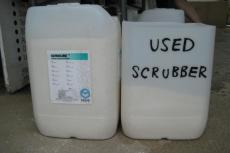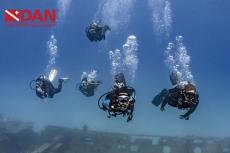Debunking DCS - Myths & Misconceptions
Decompression sickness (DCS) is a complicated phenomenon, even to the doctors and scientists who dedicate their lives to studying it. Every certified diver has learned about DCS, but once training ends, memories fade and questions come to mind.
Because DCS isn’t the most straightforward diving injury, myths and misconceptions about it tend to arise. DAN is committed to continually educating divers about it, and we’ve decided to clarify a few of the most common misconceptions about it to ensure that all divers are better able to recognize DCS, respond to it and get the treatment they need in time.
DCS occurs when bubbles of inert gas (usually nitrogen in recreational diving) manifest in the body in blood and/or other tissue. These bubbles can cause dizziness, fatigue, numbness, tingling, joint pain, shortness of breath, paralysis, muscle weakness, a rash, difficulty urinating, confusion and even loss of consciousness.
If you suspect you or your buddy has DCS after a dive, summon emergency medical services, administer first aid and emergency oxygen, then call the DAN Emergency Hotline at +1 (919) 684-9111. Even if you are not a DAN member, DAN medics will provide guidance and help you get the care you need. Following a DAN medic’s guidance will also help keep you from being led astray by the myths surrounding DCS and its treatment.
In most cases, DCS symptoms arise within a few hours of diving, but contributing factors such as altitude exposure while flying (or even driving at high altitude) can cause symptoms to arise as many as 12-24 hours later (or even longer). Typically, the more time it takes for symptoms to appear, the more benign the DCS.
From time to time DAN medics receive calls from divers who are worried they are experiencing DCS weeks or even months after their last dive. If you experience new symptoms of what you believe to be DCS any longer than a couple of days after a dive, you can feel confident the underlying condition is not DCS. Still, consult a physician.
Another misconception that can prove detrimental is that divers involved in an accident should be taken straight to a hyperbaric chamber for treatment. This is incorrect and could even be dangerous.
Any person with suspected DCS should be taken straight to a hospital, clinic or other emergency medical facility for immediate evaluation. That way the injured diver can be stabilized, any life-threatening injuries can be treated, and a physician can refer them to a hyperbaric treatment facility that’s available to treat divers.
While some hyperbaric chamber facilities treat divers, many do not, and those that do may not have a physician on staff to evaluate an injured diver or will require referral by an emergency physician before administering treatment. To avoid any delay in treatment after a diving accident, call EMS first, then call DAN and let the experts point you in the right direction.
In addition to misconceptions about seeking treatment for DCS, there are also myths out there about its recurrence. One question that DAN medical staff are asked frequently is, “I’ve had the bends before; does that make me more susceptible to getting them again?”
The short answer to this question is, “not necessarily.” Assuming complete resolution of previous DCS and no preexisting anatomical or physiological susceptibility, there is no hard evidence that suggests you will be more susceptible to DCS in the future.
Factors such as having a PFO or diving aggressively do need careful consideration. Making conservative changes to the way you dive may reduce the risk of getting into trouble again.
Listen to your body: If you do not feel well, do not dive. There is no shame in calling off a dive, and deciding to sit one out might just save your life.
If you feel ready to dive, make sure you dive a conservative profile, stay within your limits, do not overexert yourself, make a safety stop and ascend slowly. Unfortunately, most cases of DCS occur well within recreational limits and even though almost all divers take steps to prevent it, some still get it.
To minimize the likelihood that you or a buddy suffers DCS, take measures to actively avoid it every time you dive, and make sure you remember how to recognize it, respond to it and seek proper treatment if it occurs. And remember, DAN is there for all divers; call us if you need us.
For more information, visit: DAN.org




































































































